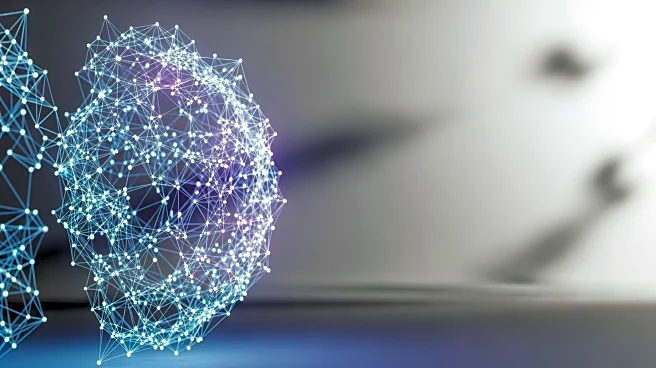What's Happening?
The European Union's AI Act is facing criticism from rights holders, including publishers and authors, who argue that the implementation measures fail to address their core concerns. Jessica Sänger, director
for European and international affairs at Börsenverein des Deutschen Buchhandels, highlights that the Act's provisions for transparency around the use of copyright-protected works by generative AI models are insufficient. The Act's implementation has been perceived as biased towards Big Tech interests, undermining the rights of creators. The open letter of protest from over 40 organizations emphasizes the need for more stringent measures to protect intellectual property rights.
Why It's Important?
The criticism of the EU AI Act underscores the ongoing tension between technological innovation and intellectual property rights. The Act's perceived bias towards Big Tech could have significant implications for the creative industries, potentially affecting the livelihoods of authors, publishers, and other rights holders. The debate highlights the challenges of balancing innovation with the protection of intellectual property, a critical issue as AI technologies continue to evolve. The outcome of this debate could influence future legislation and regulatory approaches to AI, impacting how AI models are developed and used across various sectors.
What's Next?
The European Commission is expected to monitor the implementation of the AI Act closely, with the possibility of making changes if necessary. Meanwhile, the European Parliament is considering an own-initiative report on the opportunities and challenges of generative AI and copyright, which could lead to recommendations for improvements. Rights holders continue to advocate for licensing as a means to ensure ethical AI development, and the ongoing discussions may result in new frameworks or agreements to better protect intellectual property rights in the context of AI.










